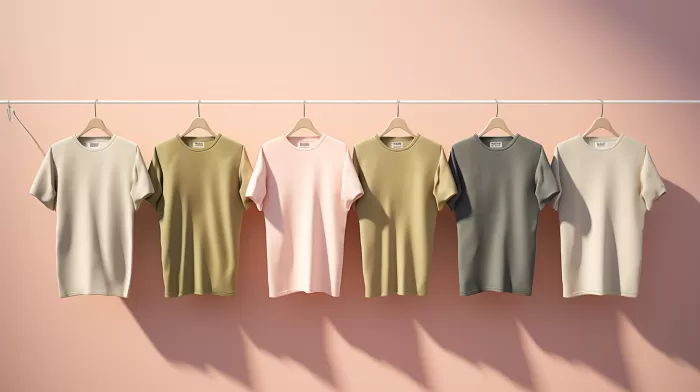Sweaty exercise is amazing for your health, but it might not be the best thing for your social life, considering how it can make you smell. But don’t worry – there’s a quick tip to help you make those pesky after-exercise odors less of an issue. And it all comes down to the type of clothing you wear.
Cotton vs Polyester
According to research from Ghent University in Belgium, wearing cotton clothing instead of polyester can significantly reduce post-exercise odors. The study found that polyester clothing gets particularly stinky after intense exercise, while cotton isn’t as welcoming to the bacteria that produce offensive smells.
When you first start sweating, the liquid on your skin doesn’t really have much of a smell. That’s because the long-chain fatty acids in your sweat aren’t readily released into the air. Here’s where things start getting smelly: bacteria break down those long-chain fatty acids into shorter chains, as well as breaking down the hormones and sulfur compounds in your sweat. This process creates volatile substances that produce that all-too-familiar, unpleasant odor.
The Bacteria Responsible for the Stink
The main bacteria responsible for breaking down sweat on clothing and creating odors are called micrococci, according to the study’s researcher Chris Callewaert. Micrococci have the amazing ability to transform long-chain fatty acids, hormones and amino acids into smaller, volatile compounds that wreak olfactory havoc.
“These bacteria are known for their enzymatic potential to transform long-chain fatty acids, hormones, and amino acids into smaller—volatile—compounds, which have a typical malodor,” Callewaert explains. It’s also worth noting that staphylococci, another kind of bacteria that live around your sweat glands, are considerably less problematic when it comes to causing a stink.
There’s a catch, though: “The micrococci are able to grow better on polyester (than on cotton),” says Callewaert. While the exact reason for polyester’s bacteria-boosting properties is still being investigated, the study suspects that it has to do with the nature of the material’s surfaces.
Armpit Odors – A Different Culprit
If your armpits are the main source of unpleasant odors after exercise, you can blame a different type of bacteria: corynebacteria. Unlike micrococci, corynebacteria won’t grow on your clothing, but they sure do love the warm, moist environment of armpits.
For those who are particularly concerned about their armpit smell, Callewaert has some advice. First, opt for cotton clothing during exercise. Second, be cautious with your use of antiperspirants, as they can actually contribute to an increase in odor-forming corynebacteria on your body. “That is what I have heard from people with BO — the more they use it (antiperspirant), the worse it eventually got,” Callewaert says. However, regular deodorants shouldn’t exacerbate the problem.
Additional Strategies to Combat Odor
- Shower regularly: Take a shower after a workout to wash away sweat and bacteria from your skin.
- Choose the right fabric for your workout clothes: As mentioned earlier, choose cotton clothes for exercising, especially for the ones that will be in direct contact with your armpits, groin, and feet.
- Change your socks and underwear daily: These areas are breeding grounds for bacteria, so keeping them clean is essential.
- Stay hydrated: Drinking enough fluids can help dilute your sweat and reduce the odor concentration.
- Watch your diet: Consuming pungent foods like garlic, onions, and spicy meals can affect your body odor. Consider making dietary changes if you notice a connection between the food you eat and your body smell.
- Consider washing your clothes with a sport detergent: These specialized detergents can help remove odor-causing bacteria and help your clothing stay fresher longer.
By following this advice and focusing on wearing cotton clothing during workouts, you can get that much-needed exercise without worrying about how you’re going to smell afterward. So go on, work up a sweat – just remember to choose the right clothing to keep those odor-causing bacteria at bay.



